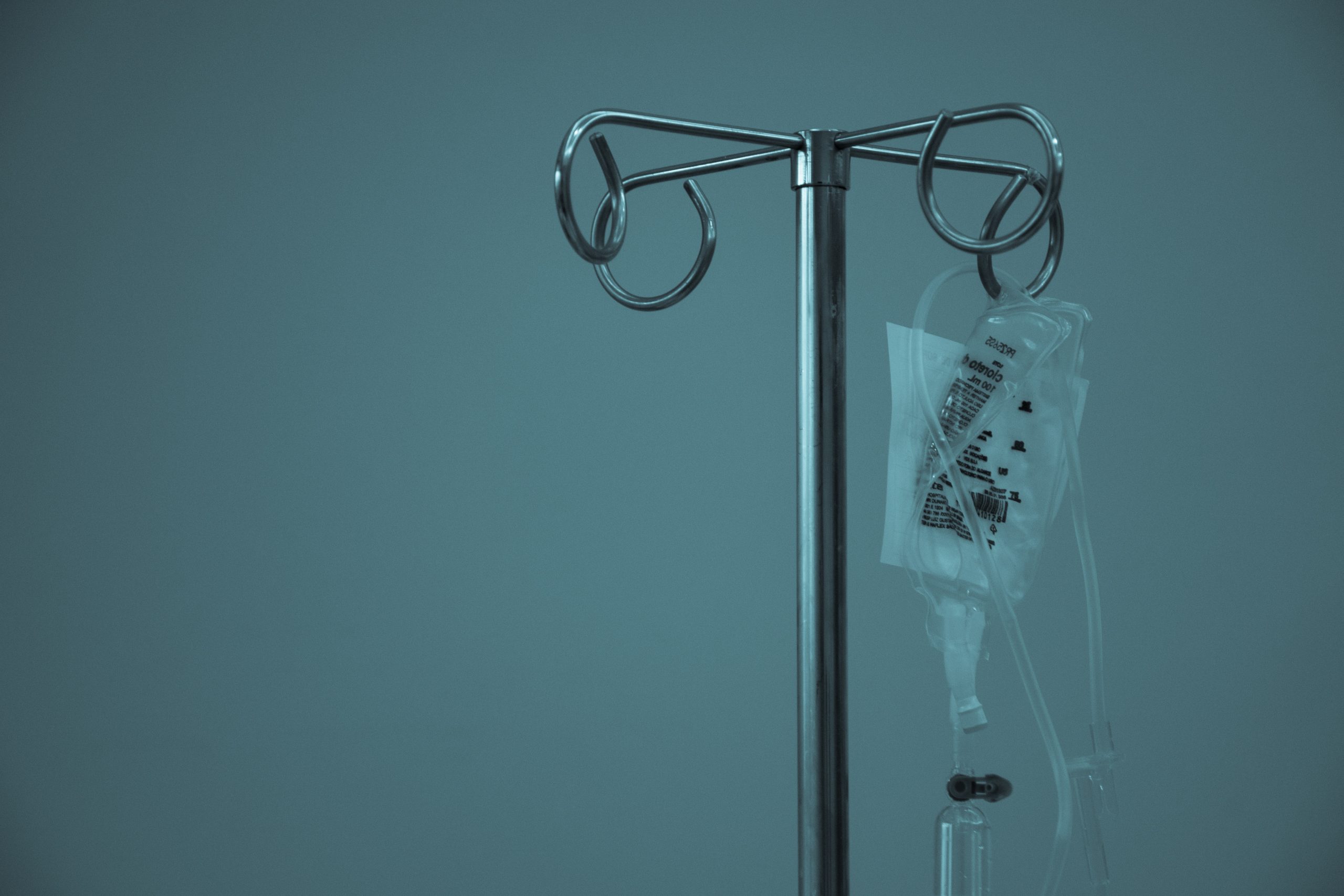Ah, hypochondriac cancer thoughts. These are the end-all, be-all thoughts that most hypochondriacs fear above all else! Whether your fears are stemming from a persistent headache, a suspicious new mole, a long-lasting cough, or any other deluge of symptoms, cancer usually takes the gold medal as far as the most undesirable outcomes as a result of these symptoms.
But, here’s the thing: you’ve gotten checked out. Your doctor has told you, time and time again, that you do not have cancer. You’ve had tests, scans, second opinions…the works! But still, those pesky hypochondriac cancer thoughts persist. Maybe you find a new symptom that causes sudden panic. Or maybe, you start to think that your doctor(s) could be wrong. Or, you may start to think that your cancer is so fast-growing that you may only have days left.
Okay, but honestly? This is no way to live. Constantly waiting for the other shoe to drop? Or in this case, waiting to be given a cancer diagnosis when your doctors know you don’t have it? It’s not good! Hypochondriac thoughts can cause you to be more stressed out, anxious, and sick than you ever were before.
That’s right – thinking hypochondriac thoughts can actually make you sick. While these thoughts may not give you cancer, the stress and anxiety surrounding these thoughts may lead to you having a whole slew of scary ailments such as high blood pressure, increased risk of heart attack, increased risk of obesity and diabetes, and many more.
Nobody wants that, right? So, if you’re currently suffering from hypochondriac cancer thoughts, you’ve come to the right place. Because we are going to give you some tips on how to overcome them.
So, without further ado, here are seven ways to overcome hypochondriac cancer thoughts:
Schedule an Appointment With Your Doctor.
If you are a hypochondriac, it is imperative that you have an ongoing relationship with a trusted medical professional. It’s important that this medical professional knows your history of hypochondria. This relationship is imperative to overcoming your hypochondriac cancer thoughts for several reasons:
The first reason is for continuity of care. As a hypochondriac, you may be tempted to jump from doctor to doctor so you can confirm the diagnoses in your head that you believe to be real. However, this can do you more harm than good in the long run. Continuity of care is so important for a hypochondriac because that doctor knows your entire medical history, and has likely lived through a good amount of it with you. If you have a concern that you bring to a doctor who has known you for a while, they will easily be able to diagnose it as either a valid medical concern or simply an offshoot of your hypochondria. If, for some reason, you go to a new doctor, they may run a series of tests and scans to prove what your original doctor already knows, which could end up being both costly and inefficient for you, the patient.
The second reason is because you need somebody who can monitor you for what is hypochondria and what is truly a symptom of a bad ailment/disease. For this reason alone, you need to have an ongoing relationship with a medical professional. In the event that you are worried about a new or reoccurring symptom, it’s very easy to reach out to your doctor to get their professional opinion on the matter. It’s important to be honest with your doctor about your hypochondriac struggles – not so they can dismiss every worry or symptom you have, but so they can understand why you are reaching out to them regularly. This will allow your doctor to conduct a thorough examination of your health, but also to be able to deliver your results or outcome with kindness and compassion.
Talk to a trusted friend or family member about your hypochondriac cancer thoughts and feelings.
In addition to having an ongoing relationship with your doctor or another medical professional, it’s important to talk to a trusted friend or family member about your thoughts and feelings. This is a super important part in overcoming your hypochondriac cancer thoughts, mainly because you will feel less alone in these thoughts.
When left alone with their thoughts, hypochondriacs tend to catastrophize them to no end. By talking to a trusted friend or family member about your hypochondriac cancer thoughts and feelings, they will hopefully be able to support you. Some ways that your trusted friend or family member can support you is by helping you understand your fears and encouraging you to find ways to cope with them.
Please note: the key here is to find somebody who is trusted. It would not be a good idea to talk about your hypochondriac cancer thoughts with somebody whom you do not know very well, who has a history of making you feel bad about yourself, or somebody with whom you do not feel would be very supportive or receptive of your fears.
Make a list of things that make you feel good.
Taking some time each day to focus on the things that make you happy and satisfied can help to reduce your hypochondriac cancer thoughts. This will help your brain to focus on the positive aspects in your life, instead of jumping to the negative aspects as a default. We know this is so much easier said than done, but try to take some time to redirect your thoughts when you’re spiraling out of control. If you’re having a hard time figuring out what kinds of things to include on your list, here are some examples:
- Achieving a goal
- Helping others
- Cuddling with pets
- Being in nature
- Laughing
- Spending time with loved ones
- Eating your favorite foods
- Traveling to new places you’ve never been before
Making this list can help you to feel more positive and hopeful. It can help you see that there are still thoughts in your life that bring you joy over anxiety. We would highly recommend keeping this list near you at all times. In doing so, you can refer to it in moments of heightened anxiety due to hypochondriac cancer thoughts. We would also encourage you to add to it during moments of heightened anxiety, so you can keep increasing the number of thoughts that bring you joy instead of anxiety!
Pay attention to your body.
When you start to doubt your health, it can be difficult to focus on anything else. This may sound counter-intuitive, but taking the time to pay attention to your body can help to reduce anxiety and hypochondriac cancer thoughts.
Why does this help?
Well, sometimes, our thoughts get the better of us. We may think that we are experiencing a specific symptom. When in reality, we are just worrying about having that specific symptom. In the case that we are experiencing a real symptom, we may overestimate how long we’ve had that symptom. We also may wonder whether or not that symptom has bothered us in the past but had gone unnoticed.
Establishing a mindfulness practice can be extremely helpful in overcoming your hypochondriac cancer thoughts. This will allow you to see your symptoms and thoughts for what they actually are, as opposed to what they could be.
Is establishing a mindfulness practice challenging for you? try writing down your observations about your body in a notebook or journal. This will give you a good starting off point, from day to day. You will also be able to observe patterns from a daily basis. This could be helpful in noticing whether there are certain days or periods in which your hypochondriac thoughts are strongest. For example, when you’re having a particularly stressful time at work). This is all information that will allow you to overcome your hypochondriac cancer thoughts when they are at their worst.
Practice relaxation techniques.
When you are feeling anxious or tense, it can be difficult to relax. Taking some time each day to practice relaxation techniques can help to reduce anxiety and hypochondriac thoughts. There are many different relaxation techniques that can be used. It may take some trial and error to find the one that works best for you. Some popular relaxation techniques include progressive muscle relaxation, deep breathing, and meditation.
Or, you can try going for less traditional relaxation techniques. Some examples of these are exercising, doing a puzzle, cooking, reading a book, or cuddling with an animal. The whole key of finding and practicing a relaxation technique is to find something that works for you. What works for you may not work for somebody else, and that’s completely okay!
Relaxation techniques can be a helpful tool in managing hypochondria. With practice, you can learn to control your thoughts and reduce your anxiety.
Seek out professional help for your hypochondriac cancer thoughts.
If you are struggling with hypochondriac cancer thoughts, professional help may be a great option in helping you overcome them. This professional help can be from a therapist, counselor, or doctor. Talking to someone who can help you understand your thoughts and feelings can be very helpful.
It’s best to seek out professional help from somebody who understands hypochondria, because not everybody does. When you speak to your mental health professional, be completely honest with them about your specific fears and anxieties. They will be able to give you coping mechanisms to deal with your fears.
Some mental health professionals might try treating you with cognitive-behavioral therapy. Also known as CBT, this can help you reduce your hypochondriac cancer thoughts. Cognitive-behavioral therapy is a way of changing your negative thinking patterns by a wide variety of different strategies, such as:
- Identifying cognitive distortions and learning how to view them again from a reality-based view
- Facing one’s fears in order to bring down the power of the negative thoughts associated with those fears
- Learning how to develop confidence and conviction in one’s positive thoughts
Remember that hypochondriac cancer thoughts are just thoughts.
It is important to remember that your thoughts are only that – thoughts. They are not reality. The only way to get confirmation about whether or not you have cancer is to visit a doctor. So, if your doctor has told you that you are in the clear, then you can rest easy knowing that your hypochondriac cancer thoughts are just thoughts. If you want to feel like you are being proactive about your health, make sure to schedule regular physicals with your doctor and to eat healthy, exercise, and get 8 hours of sleep per night.
Disclaimer: THIS WEBSITE DOES NOT PROVIDE MEDICAL ADVICE.
If you are currently experiencing medical concerns, it’s important to talk to a doctor to rule out any underlying medical conditions. HypochondriacHQ does not substitute professional medical advice or consultations with healthcare professionals. Never disregard professional medical advice or delay in seeking it because of something you have read or seen on this website.




